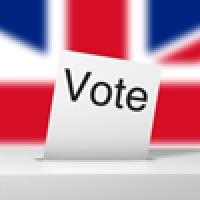
When do you find large swathes of the UK population actively engaged in mathematics until very late at night? During a general election! Democracy simply couldn't function without maths, and that's not just because votes need to be added up and turned into percentages, but also because the very idea of fairness in an election can only be expressed, and analysed, using maths.
In this series of articles Chris Budd asks whether any election can ever be fair, looks at three common voting methods and why they are flawed, and explores methods that are fairer but also more complex. Enjoy!
Elections: Can they be fair? — Unfortunately, maths says that they can't, at least not perfectly. This article explores this ground-breaking insight, which won Kenneth Arrow a Nobel Prize in economics.
Elections: Three common methods — First past the post, proportional representation, instant run-off voting, and (oh no!) the Brexit referendum. How do they fare in terms of fairness?
Elections: Could they be fairer? — With a bit of maths we could indeed make elections fairer than they tend to be in practice. But this would also make them more complex.